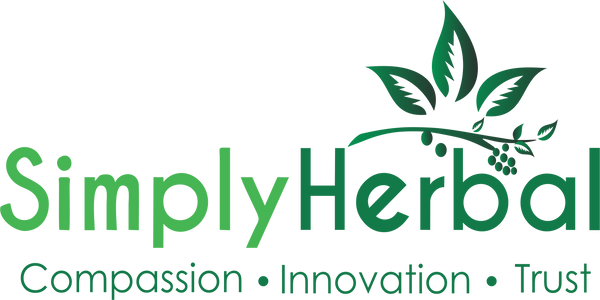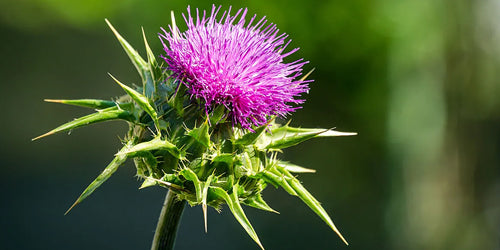Introduction
In the realm of natural remedies, the wonders of nature often remain hidden, and one such gem is milk thistle. Although not as widely recognized as other herbal solutions, milk thistle boasts a rich history of enhancing overall health naturally. In this blog post, we will delve into the world of milk thistle, exploring its origins, its myriad benefits, answering common queries, and uncovering intriguing facts that are sure to captivate your interest.
Milk thistle, scientifically referred to as Silybum marianum, is a flowering herb that is a member of the daisy and ragweed family. Originating in the Mediterranean region, this plant is distinguished by its striking purple blossoms and distinctive spiky leaves. However, its allure extends beyond its appearance, as it is renowned for the extensive array of therapeutic properties it possesses.
Benefits of Milk Thistle
- Liver Support: Arguably the most renowned advantage of milk thistle is its capacity to promote liver health. It harbors a potent compound known as silymarin, which serves as a natural antioxidant recognized for shielding liver cells against damage induced by free radicals and toxins.
- Detoxification: Milk thistle plays a pivotal role in aiding the liver's detoxification functions by augmenting the production of glutathione, a critical antioxidant integral to the detoxification process.
- Anti-Inflammatory Properties: Silymarin, a constituent of milk thistle, boasts anti-inflammatory characteristics, potentially making it a valuable remedy for ailments like fatty liver disease and hepatitis.
- Cholesterol Reduction: Research suggests that milk thistle may have the potential to reduce levels of detrimental cholesterol, which can have positive implications for cardiovascular health.
- Skin Wellness: The benefits of milk thistle extend beyond internal organs, with its anti-inflammatory properties being capable of contributing to healthier and clearer skin.

FAQ’s
- How should I consume milk thistle?
Milk thistle is accessible in various formats, including capsules, tinctures, and teas. Seek guidance from your healthcare provider for personalized advice on the optimal method of consumption.
- Are there any potential issues?
While this product is generally considered safe, certain individuals might encounter mild side effects like stomach upset or diarrhea. It's important to adhere to the recommended guidelines and have a discussion with your healthcare provider regarding any concerns.
- How long does it take to feel the benefits of milk thistle?
The time it takes to realize the benefits of milk thistle varies from person to person. While some people see improvement in a few weeks, others take longer to observe visible results.
- Is milk thistle suitable for everyone?
Pregnant or elderly women and people with certain medical conditions should consult a doctor before deciding to use milk thistle. It's important to make sure milk thistle is the right choice for your particular situation.
Five Fascinating Milk Thistle Facts
- Historical Roots: Milk thistle's historical use traces back to ancient Greece and Rome, where it was highly regarded as a remedy for a range of liver-related ailments. Its medicinal heritage spans centuries.
- Alien Connection: The plant's scientific name, Silybum marianum, carries an enchanting association with the Virgin Mary. Legend has it that the white spots adorning milk thistle leaves were believed to be the result of the Virgin Mary's milk miraculously falling upon the plant. This connection adds a touch of mystique to its history.
- Edible Delight: While typically celebrated for its therapeutic properties, young milk thistle leaves offer a culinary delight. They are not only edible but also versatile, making them a delightful addition to salads or a delightful spinach substitute in various dishes.
- Hepatitis Helper: Recent studies have unveiled milk thistle's potential in the realm of medical treatment. It shows promise as a valuable asset in the management of hepatitis, a viral infection that primarily affects the liver. This newfound application adds a contemporary dimension to its traditional uses.
- Bees' Favorite: Beyond its human admirers, the vibrant purple flowers of milk thistle also captivate nature's pollinators, notably bees. These buzzing insects are drawn to its blossoms and play a pivotal role in pollinating the plant, highlighting the interconnectedness of the ecosystem and underscoring the significance of milk thistle in the natural world.
Click Buy It Now - Milk Thistle Capsules

